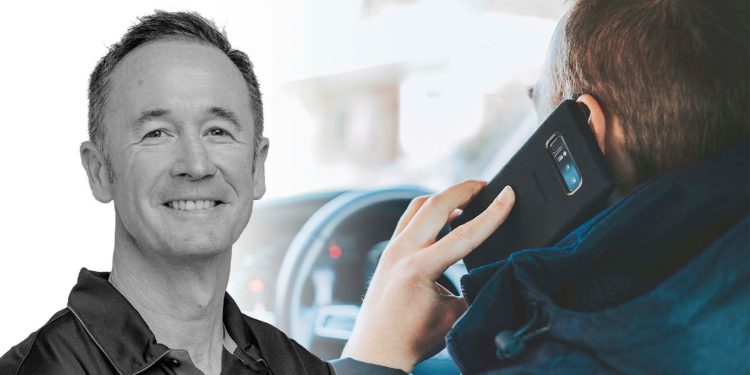Greg Murphy – Cut distraction to reduce the death toll
Words: Greg Murphy
Last year in Auckland, Waka Kotahi conducted a safety camera trial to ‘get a better understanding of how many people drive while using their mobile phones and don’t wear their seatbelts’. The six-month trial included three cameras which detected just over 200,000 mobile phone offences or 1.6 per cent of the 12 million cars recorded. While most are doing the right thing, there are still too many drivers flouting the law when it comes to distraction behind the wheel.
The vehicles we drive today require less of our attention to operate and so we use our hands for other things like mobile phone use. One of the most disturbing behaviours you notice are parents on their phones when they are dropping kids off at school. Or drivers checking their device while negotiating an intersection. The world is so connected now that people can’t leave their phone alone when they are in the car.
I believe distraction is a bigger contributor to crash rates, injuries and deaths than what is reported. It’s difficult to know if driver distraction was the cause of an accident when that person is dead, while others won’t acknowledge what they were doing before a crash.
The deployment of these safety cameras to catch distracted drivers on their phones is something I see as a positive step towards changing dangerous behaviours. We all know we shouldn’t be doing it and attitudes need to change. When humans do something they know to be wrong but get away with it repeatedly they continue to do it. There is research to back this up. When they don’t suffer a consequence from their actions, it becomes habitual. The more they do it and get away with it the harder it is to change that behaviour.
Most people using their phone while driving are not thinking of anybody else, or the potential consequences. Because they have gotten away with this behaviour for so long, they are no longer thinking of others. How many innocent victims are inadvertently caught up in this blatant disrespect for other road users by these people?
The transport agency says ‘a privacy impact assessment on the trial was carried out, and Waka Kotahi has been working with the Office of the Privacy Commissioner to address all privacy matters’. This aspect of privacy shouldn’t be something that is used to stall a safety innovation like this, one that has the potential to save lives on our roads. It’s ludicrous to think someone’s privacy while they are on a public road is more important than someone’s life. There will be arguments for protecting driver privacy but I just don’t get it.
We are not going to change people’s behaviour by telling them what they should be doing, and I believe that drivers snapped using a handheld mobile device should face a stiff penalty. It needs to be significant, a minimum of $500 as it’s pathetic at present. And it needs plenty more demerit points associated with it too.
I’d like to see the police with the power to confiscate devices on the spot but cameras will pick up more offenders than police on bikes filtering through the traffic. This type of technology is the way to go. If they are reeling in millions of dollars a month in fines, we will get a change. What we need then is for that money to be spent on the transport system in the correct places and doing things to make it safer out there. In particular, we need much better education and training to make people more aware of actually how dangerous it is to be driving while distracted. We know that speed cameras can change driver behaviour in the areas they operate and so I believe safety cameras that are looking for distracted drivers will have a positive outcome for all.





